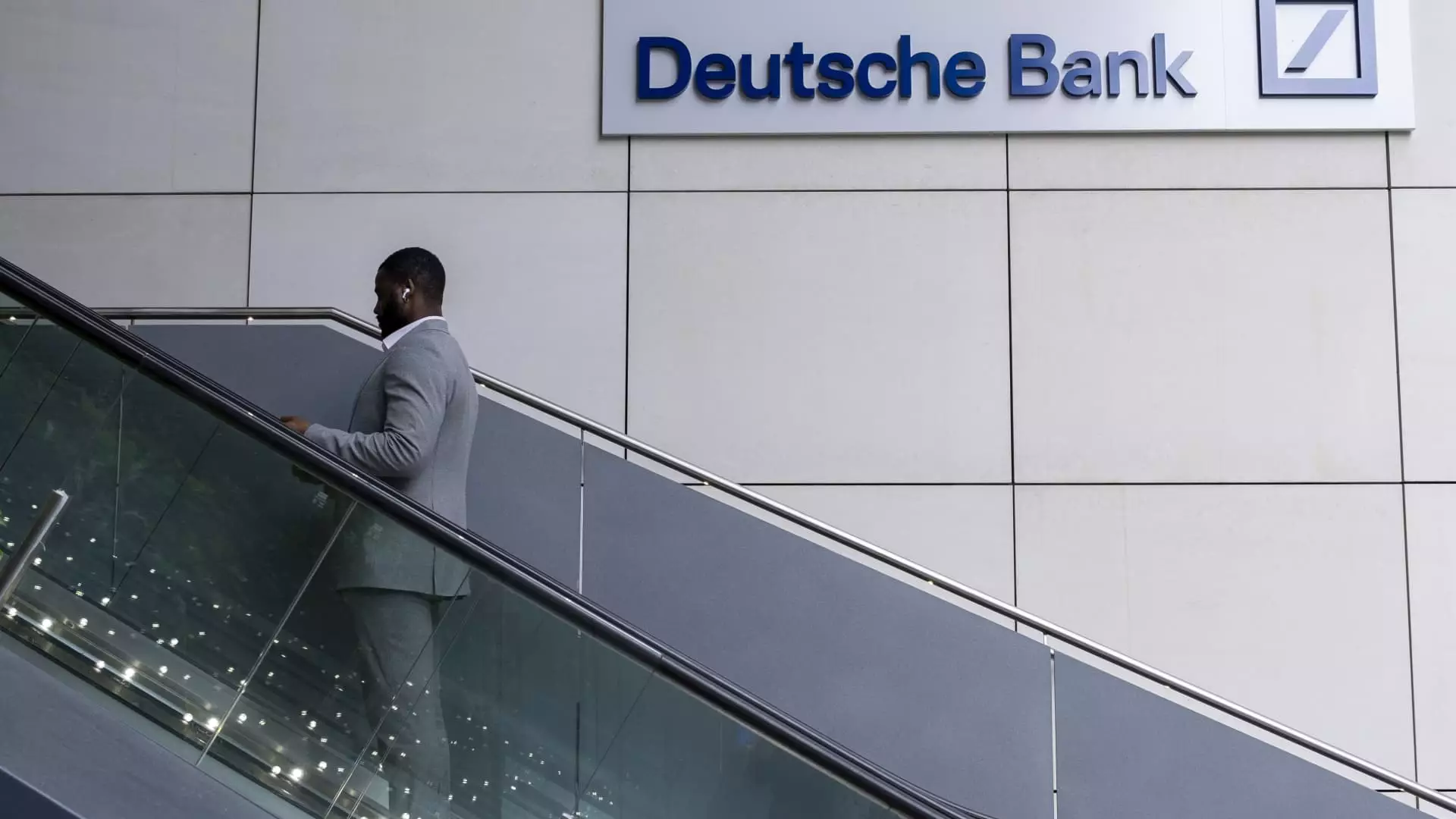Deutsche Bank, Germany’s largest financial institution, experienced a disappointing fourth quarter in 2024, marking a sharp decline in profits that fell short of market expectations. The net profit attributable to shareholders reached only 106 million euros (approximately $110.4 million), a significant decline from the 1.461 billion euros reported in the previous quarter, and well below the predicted 282.39 million euros according to an LSEG analyst poll. This sharp decrease raises concerns about the bank’s volatile profit trajectory and its ability to maintain investor confidence moving forward.
In addition to the disappointing quarterly results, Deutsche Bank’s full-year net profit also showcased challenges, dropping by 36% to 2.698 billion euros compared to 2023. The decline emphasizes the adverse impact of ongoing legal liabilities and non-operating costs that have burdened the bank’s financial performance throughout the year. These factors reflect broader issues the bank faces in regaining stability after a turbulent decade of fluctuating earnings.
A substantial aspect of Deutsche Bank’s financial struggles has been the hefty legal provisions that the bank incurred, amounting to 594 million euros during the fourth quarter alone. This financial burden represents the culmination of various past legal issues, especially those stemming from the ProBank takeover, where the litigation has been particularly costly, reaching around 900 million euros for 2024. The Chief Financial Officer, James von Moltke, acknowledged the profound impact of these one-off expenses, which primarily relate to historical matters that continue to echo into the present.
This ongoing struggle with legal complications emphasizes the necessity for Deutsche Bank to address past challenges more effectively while striving to create a more transparent and sustainable operational model. A clear shift in focus toward risk management and the elimination of legacy issues could potentially restore some investor confidence in the long run.
As part of its strategic plan to navigate these financial hurdles, Deutsche Bank is targeting a cost-income ratio of below 65% for the upcoming year, an adjustment from the earlier goal of below 62.5%. This shift reflects the bank’s recognition of the financial pressures it’s under and the need for recalibrating its expectations and operational goals amid a challenging environment.
In a bid to instill further confidence among shareholders amidst these struggles, Deutsche Bank announced a share buyback program worth 750 million euros. This initiative, while aiming to reassure stakeholders of the bank’s long-term potential, also reflects a cautious optimism about its ability to generate cash flow and maintain shareholder returns, despite the headwinds currently facing the banking sector.
Deutsche Bank’s performance is reflective of wider trends influencing the European banking sector, especially as the European Central Bank (ECB) prepares to ease its monetary policy that, in previous months, delivered robust support for banks through higher interest rates. Analysts from ING indicate that the favorable conditions for net interest income that benefitted European banks are now waning, urging a shift towards more sustainable revenue streams, such as fee-based income. This view reinforces the notion that banks need to innovate and diversify their income sources as they respond to an evolving economic climate.
As Europe grapples with stagnant economic growth, rising energy costs, and inflation, Germany’s largest lender must adapt its strategies to not only survive but thrive amidst the challenging landscape. The upcoming general elections in February may further increase political volatility, influencing both consumer and investor sentiment.
While Deutsche Bank has seen favorable results from its investment banking operations, which reported a 30% year-on-year increase in revenues during the fourth quarter, sustaining this growth will be crucial. The bank must capitalize on this growth pillar to bolster its overall performance and navigate the uncertainties ahead. Investment banking remains a crucial component of its business strategy, but it needs to be supplemented by solid management of legal risks and a more robust approach to capital management.
Deutsche Bank’s fourth-quarter results and broader financial performance in 2024 reveal a mix of challenges and potential pathways forward. Addressing legal liabilities, maintaining investor confidence through strategic initiatives, and adapting to changes in the economic environment will be essential for the bank to recover and sustain its performance in the coming years. The focus on resilience and strategic clarity could help Deutsche Bank emerge from this phase of uncertainty, guiding it toward a more sustainable future.

